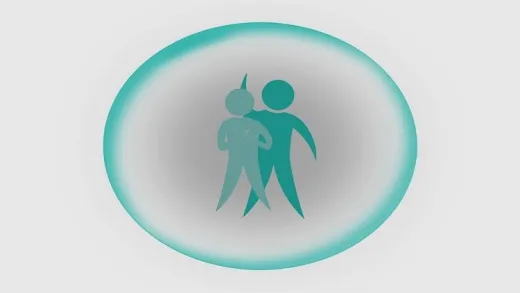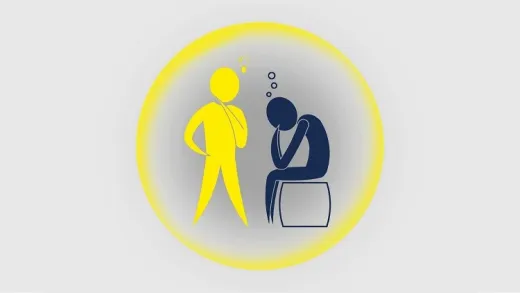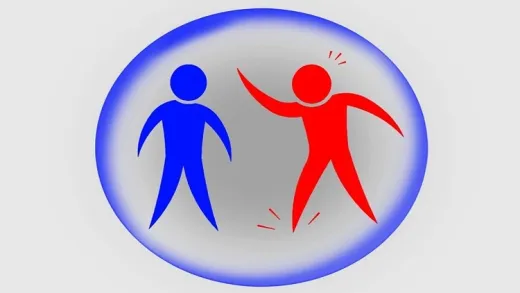About This Course
The key success factor in your personal and professional life.
“If your emotional abilities aren’t in hand, if you don’t have self-awareness, if you are not able to manage your distressing emotions, if you can’t have empathy and have effective relationships, then no matter how smart you are, you are not going to get very far.” ― Daniel Goleman
“Do not allow negative feelings and emotions to control your mind. Emotional harm does not come from others; it is conceived and developed within ourselves.” ― Carlos Slim
One of the key benefits of emotional awareness is that it can help us manage our emotions correctly. When we are aware of our emotions, we can identify triggers that might contribute to feeling upset or angry and take steps to manage those feelings before they escalate. For example, if we know that we tend to get anxious in certain situations, we can take steps to prepare ourselves and calm our nerves. Another benefit of emotional awareness is that it can help us make better decisions. When we are in touch with our emotions, we are better able to understand how they might be influencing our decisions and can take steps to make more objective choices. For example, if we are feeling particularly angry or upset, we might be more likely to make impulsive decisions that we later regret. By being aware of our emotions, we can avoid these kinds of pitfalls.
Emotional awareness also helps us understand the emotions of others. When we can recognise and empathise with the emotions of others, we can better connect with them and build stronger relationships. This can be particularly important in professional settings, where building strong relationships with co-workers and clients is key to success.
While emotional control can be challenging, it is a skill that can be learnt through practice. It’s important to recognise that we all have moments where we lose control, but it is crucial to apologise if necessary and use humour appropriately to diffuse any tense situations. The key to emotional control is to acknowledge, label, verbalise, and act on our emotions in a healthy and acceptable way. Failure to do so can lead to detrimental consequences such as damaging relationships, ruining our health, and derailing our careers. Like any skill, emotional control requires practice to integrate into our daily lives.
We are two facilitators for this course, Drs Ronél le Roux and Rina de Klerk-Weyer, who both have a Ph.D. We did therapy in our private practices before we realised that it is very important to work pro-actively. Working in this way means that we teach and guide people in learning important life skills that they will be able to use in their personal and professional lives. People who have these skills can apply it before and while they experience problems in their lives.
We are passionate to share our wisdom and years of experience with you. During this course, we will guide students to
Realising where their emotions come from, whether it is from their needs, thinking patterns or values. Knowing the cause of your emotions help you to understand and manage them in a more constructive way.
Becoming aware of their feelings, as it is presenting itself in the body, for example, heart palpitations and sweaty hands may indicate that you are anxious. This skill helps us to recognise the emotion sooner so that it will not overwhelm us.
Learning the names of various emotions. It is quite important to be able to give your feelings the correct name, as that will help you to manage them. An example of this is the difference in coping with frustration and anger. Frustration usually indicates to us that something is not working like we want it to work and that we need to do something different. Anger is an emotion that is coming from other emotions like hurt or disappointment.
Knowing the difference between suppressing and controlling/managing your emotions. This is important as most people rather suppress their emotions than dealing with it, with negative consequences.
Practising various ways in coping with your emotions. Here we will focus on easy to apply skills to lower the intensity of your emotion, for example, deep breathing and doing some simple brain gym exercises.
Applying these skills in your everyday life. We will provide several examples and case studies that will help the students apply their new skills in personal and professional situations.
Why is it important to have these skills?
Emotional awareness, control and management play crucial roles in various aspects of life, including personal relationships and professional success. Here are some important benefits of developing these skills:
Enhanced self-awareness: Emotional awareness allows individuals to understand their own emotions and recognise how they impact their thoughts, behaviours, and overall well-being. It helps in identifying personal triggers, strengths, weaknesses, and areas for growth, leading to increased self-knowledge and self-acceptance.
Improved communication: When individuals are emotionally aware, they can effectively express their feelings, needs, and concerns in a clear and respectful manner. They become better listeners and are more attuned to nonverbal cues, facilitating effective communication and fostering healthier relationships.
Strengthened relationships: Emotional awareness and management skills contribute to more harmonious and fulfilling relationships. By understanding their own emotions and empathising with others' feelings, individuals can build stronger connections, resolve conflicts constructively, and cultivate empathy, trust, and intimacy in personal relationships.
Effective stress management: Emotional control enables individuals to better handle stress and adversity. It helps in regulating emotional responses, preventing impulsive reactions, and promoting healthier coping mechanisms. By managing stress effectively, individuals can maintain their overall well-being and prevent the negative impact of chronic stress on their physical and mental health.
Increased resilience: Emotional awareness and management foster resilience, enabling individuals to bounce back from setbacks and challenges. They develop the ability to adapt to change, regulate their emotions during difficult times, and find constructive solutions. This resilience is valuable both personally and professionally, as it helps individuals navigate obstacles and maintain a positive outlook.
Enhanced leadership skills: Emotional intelligence, which encompasses emotional awareness and management, is a critical component of effective leadership. Leaders who possess these skills can understand and address the emotional needs of their team members, promote a positive work environment, resolve conflicts, and inspire others to perform at their best. Such leaders are more likely to earn the trust and loyalty of their colleagues.
Increased job satisfaction and performance: Emotional awareness and management contribute to higher job satisfaction and performance. Individuals who understand their own emotions and can manage them effectively are better equipped to handle workplace stress, navigate challenging situations, and maintain positive relationships with colleagues. This leads to increased motivation, productivity, and overall career success.
Emotional awareness, control, and management bring a multitude of benefits to everyday life and relationships, as well as professional endeavours. By developing these skills, individuals can foster self-awareness, communicate effectively, strengthen relationships, manage stress, build resilience, enhance leadership abilities, and improve overall well-being and success.
Students doing the course will have to complete questionnaires, do homework and self-reflection, and do role-plays with friends and or family. They will receive a workbook with various activities to do. We will be available to our students to offer guidance and support when needed, via email.
After taking the course, students will be able to be aware of their emotions, knowing how to recognise it in their bodies and how to give it a name.
They will be able to manage and control it in stead of suppressing it.
They will be able to apply their new knowledge and skills in their personal and professional lives.









Fabrizio S.
My favourite EI course on emotional awareness and control, just love it!❤️